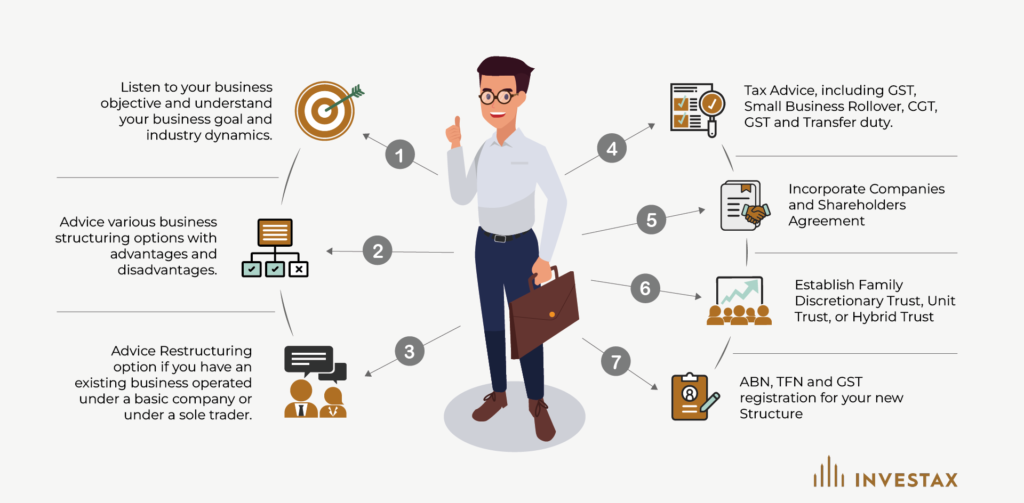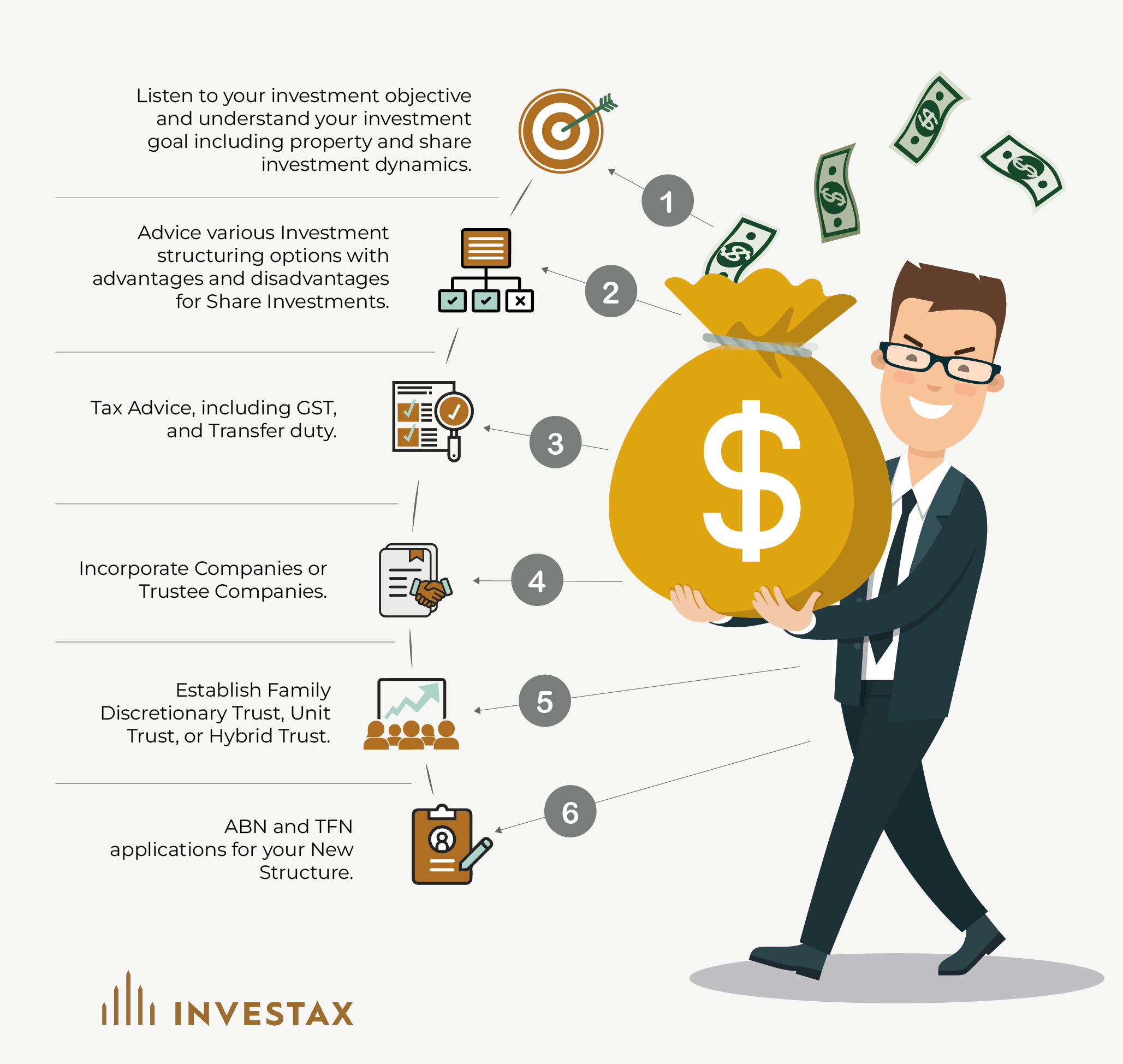Welcome to Investax, your trusted partner in tax accounting! We focus on offering top-tier tax advice and year-end tax return services. We are the preferred choice for professionals across diverse fields, catering to every step of your wealth creation journey. Regardless of whether you’re an aspiring medical practitioner, legal professional, tech professional, educator, active investor, skilled tradesperson, healthcare provider, or a specialist in any other domain, our adept team is poised to guide you through the intricate tax landscape, optimizing your financial gains along the way.
STEP
Precise Tax Preparation
At Investax, quality is our first preference, and we take precise tax preparation very seriously. Our team of expert accountants specializes in accurate and timely tax filing, going the extra mile to ensure every detail is handled with care. We understand the complexities of tax forms and meticulously report all income, deductions, and credits to minimize any potential errors or discrepancies. To uphold our commitment to quality, we follow a rigorous quality assurance process that involves multiple review stages. Unlike doing tax returns on the spot, this thorough approach ensures that your tax return receives the attention it deserves and adheres to all regulatory requirements.
STEP
Expert Guidance Through Ever-Changing Tax Laws
Tax laws are not set in stone; they are subject to constant change. Keeping track of these updates can be an arduous task, especially when you have other obligations to attend to. You can rely on Investax Accountant to stay up to date with the latest regulations, credits, and deductions. We will guide you through the evolving tax landscape and keep you compliant with all requirements.
STEP
Avoiding Costly Mistakes
Filing taxes involves a mountain of paperwork, and even a minor error can have costly consequences. Investax accountant’s attention to detail can help prevent such mistakes, ensuring accurate and timely filing, thus avoiding penalties and audits.
STEP
Identifying Overlooked Deductions and Savings
Our keen-eyed accountants can spot eligible deductions and tax credits that you might miss on your own. This can lead to substantial tax savings and increase the likelihood of receiving a higher tax refund.
STEP
Proactive Tax Planning
The real magic of a tax accountant lies in their ability to strategize. Our experienced accountants will work closely with you to develop personalized tax planning strategies. By analysing your financial records, deductions, and credits, we can optimize tax savings while ensuring compliance with tax laws.
When is the deadline for filing my individual income tax return in Australia?
The usual deadline for filing your individual income tax return in Australia is October 31st. However, if you are using a registered tax agent, you might be eligible for an extended deadline, generally up to May 15th of the following year.
Is the income I earned overseas taxable in Australia?
In most cases, yes. If you are an Australian resident for tax purposes, you generally need to declare your worldwide income on your Australian tax return. However, certain exemptions and credits might be available based on international tax agreements.
Can I get a refund if I’ve paid too much tax during the year?
Yes, if you’ve paid more tax than you owe, you can receive a tax refund. This usually happens when your employer withholds more tax than necessary from your wage, you’ve made excess payments throughout the year, or you have large investment losses/negative gearing.
What happens if I miss the tax filing deadline?
If you miss the October 31st deadline and you’re not using a tax agent, you might face penalties and interest on any tax owing. It’s best to lodge your return as soon as possible to avoid these additional charges.
Can I claim deductions for working from home?
Yes, you can claim deductions for expenses related to working from home if you meet the eligibility criteria. The ATO introduced a simplified method, which allows you to claim a fixed rate for each hour worked from home.
Why do I have to pay the Medicare Levy Surcharge?
The Medicare Levy Surcharge is an additional charge imposed on Australian taxpayers who earn above a certain income threshold and do not have adequate private health insurance. Its purpose is to encourage individuals to take out private health cover and relieve some of the pressure on the public healthcare system (Medicare).
I travel for work. Can I claim car expenses?
Yes, you may be able to claim car expenses if you travel for work-related purposes. This includes using your car to perform tasks directly related to your job, such as visiting clients, attending meetings, or traveling between different work locations. Keep accurate travel records, including travel distances and related expenses, to support your claims. Remember that personal trips, such as commuting from home to your regular workplace, are generally not eligible for tax deductions.
















